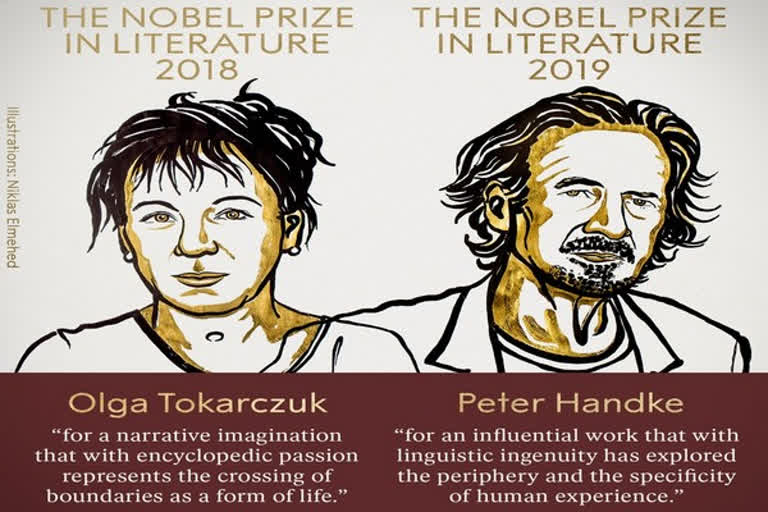If the mother gives birth, mother tongue gives worth. Just as mother’s presence gives pleasure, writing in the mother tongue gives comfort. Feelings cannot be articulated in other languages the way they are done in the native tongue. A large number of Nobel laureates in literature who wrote in their native tongues is an illustration to this fact. Olga Tokarczuk, a Polish writer won the Nobel prize for Literature in 2018. Likewise, Peter Handke, an Austrian novelist won the prestigious prize for the year 2019.
The works of Charles Dickens, George Eliot, Charlotte Bronte, Thomas Hardy, Emily Bronte and Samuel Butler during the reign of Queen Victoria were considered Victorian Literature. This literature was characterized by serialization, progress, nostalgia and utilitarianism. During the 20th century, American novelists introduced the world to modernism through their great works. They wrote short novels using little words and big ideas. One such 125-page masterpiece of the modernist movement The Old Man and the Sea written by Ernest Hemingway won the Nobel prize for Literature. Hemingway chose everyday people as protagonists in his novel.
The Books of Jacob by Olga Tokarczuk is a historical epic that traverses 3 religions, 5 languages and 7 nations. Olga gave a fresh perspective to a religious movement called Frankism which took place in 18th century Poland through her words. Bieguni, another fragmentary novel written in Polish by the same author and translated as Flights in English won the Man Booker, 2018. She won the Nike Award, Poland’s top literary prize in 2008. Olga is the 15th woman to win the Nobel prize in Literature. Peter Handke, who put an abrupt stop to his law career to pursue writing wrote all his novels in his mother tongue German. His novel WunschlosesUngluck is about his mother’s suicide and how it impacted him. Peter won several awards as a screenplay writer too.
To date, 116 people have been awarded the Nobel prize in Literature. Out of them, only 29 authors wrote in English and 3 authors wrote in their mother tongue and English simultaneously. Rabindranath Tagore was the first Asian to win Nobel Prize for Gitanjali. Later, he translated the book to English. VidiadharSurajprasadNaipul, a Trinidadian and Tobagonian British writer won the Nobel for his works in 2001. French and German writers won 14 Nobel prizes each. 11 Spanish, 7 Swedish, 6 Italian, 6 Russian, 5 Polish, 3 Danish, 3 Nigerian, 2 Chinese, 2 Japanese and 2 Greek writers won Nobel prizes for the literary works in their native languages. Among these, France stands first with 16 winners followed by 12 from America, 11 from the United Kingdom, 8 each from Germany and Sweden, 6 each from Poland, Italy and Spain, 4 from Ireland and 3 each from Denmark and Norway.
Indians have a misconception that it is mandatory to write in English in order to win the Nobel Prize in Literature. Budding writers take Salman Rushdie, Arundhati Roy, Kiran Desai and Aravind Adiga as examples. Indian English writers are winning The Booker Prize. But regional language books are not getting translated to English, refraining them from competing on a world stage. Even classics in regional languages are not being translated. A writer must have a thorough knowledge of both the source and target languages to produce a quality translation. Tagore expressed grief over the poorly translated Gitanjali. Literary works of European and African writers are getting translated to English in no time. Though there are language universities in Telugu states, highly famed Kanyasulkam written by Gurajada had to wait a century to see its English translation. Besides, only a small minority of Indians pursue writing as a career. There is no mention of writing practice in our curriculum either. The responsibility of encouraging budding writers and prioritizing translation literature lies with the universities and government.
Also Read: Solar scam fame Saritha Nair sentenced to 3 years jail in windmill case at Coimbatore




